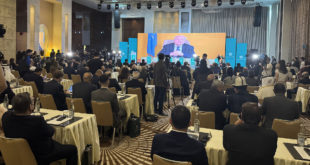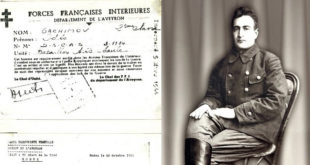Karim Ifrak
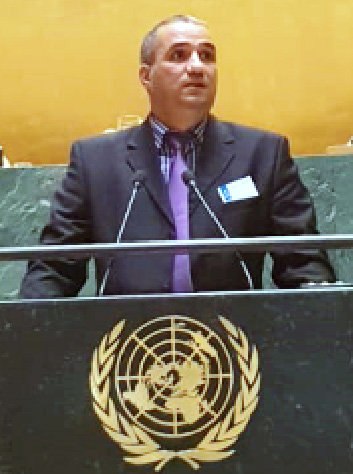
Doctor of the Practical School of Higher Studies (EPHE), Karim IFRAK is an Islamologist. A researcher at the CNRS, he is a specialist in the history of texts and contemporary ideologies. With several written contributions to his credit, he is the author of: “Should we reform Islam? Some keys to reading ”, ed. Bouraq, Paris, 2017. “Liberty, Equality, Fraternity: Spiritual Values, Republican values”, (prefaced by the Prime Minister Mr. Édouard PHILIPPE), Olivétan, Lyon, 2018. “Ibn Achour, his life, his work and his thought », Published by the IMA, 2020.
A land of tolerance
Before becoming a predominantly Muslim country, Azerbaijan (10 M), this « land of fire » located in the heart of the three great Empires, Sassanid, Ottoman and Russian for which they braved, along several centuries, all the dangers, was originally a hotbed of Zoroastrianism. A multi-faith, multicultural and multi-ethnic country, the Democratic Republic of Azerbaijan has consistently praised, since its proclamation of independence in 1918, its centuries-old tradition of religious tolerance and social inclusiveness. That is why, firmly attached to these fine values, the present Republic of Azerbaijan is above all a space of tolerance, inclusiveness and pluralism. Firmly attached to the principles of secularism, the Republic of Azerbaijan stipulates in article 18 of its Constitution « that religion acts separately from the affairs of state and government », thereby forming both body and mind of secularism known as Azerbaijani. Another article, 48, reinforcing the previous article, guarantees the right to freedom of conscience, thus allowing everyone to practice their faith without any constraints, to believe or not to believe. In this way, all beliefs are considered equal before the law and therefore treated on an equal footing. Moreover, under the Constitution every person has the right to convert to the creed of his choice, including atheism, to join or to establish the religious group which suits him. Article 283 of the Penal Code, for its part, criminalizes all acts leading to incitement to hostility on grounds of national, racial, social or religious origin. And in accordance with paragraph 18a of GPR No. 7, this provision includes incitement to hatred and discrimination.
A land of dialogue
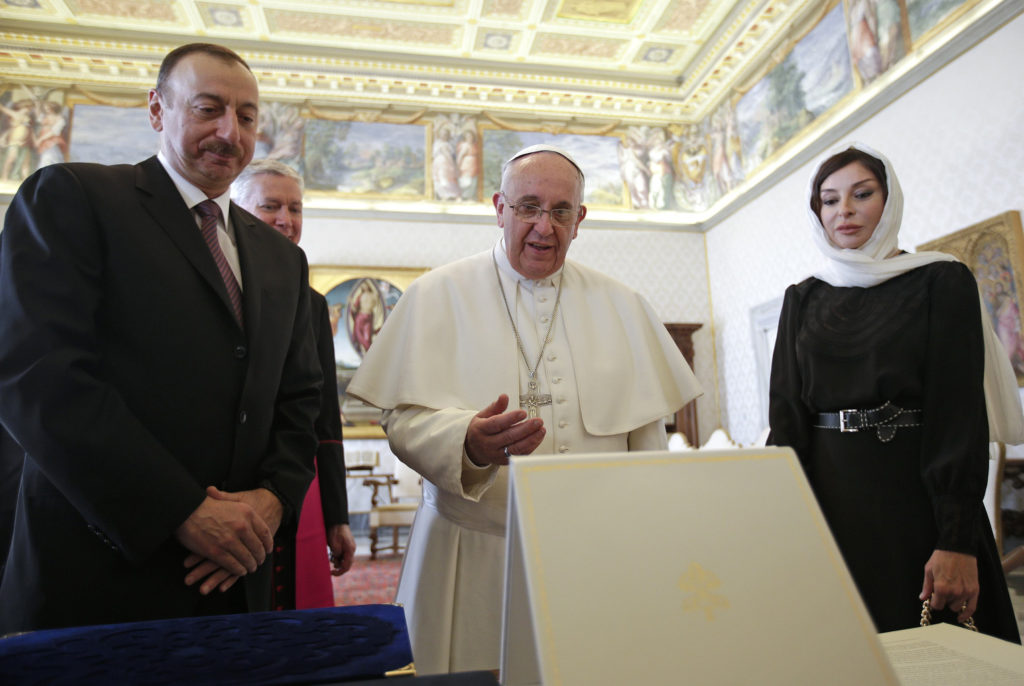
Guarantor of sacrosanct religious tolerance, the Republic of Azerbaijan stimulates all types of actions aimed at developing the values of tolerance, inclusiveness and secularism. Also, with the support of the state, sometimes with that of President Ilham Aliyev in person, international events are regularly organized by Baku. A great opportunity to let the whole world know that the ancestral « land of fire » is above all an ancestral « land of tolerance ». This is particularly the case of the World Forum on Intercultural Dialogue, on the program every two years, recognized by resolutions of the United Nations General Assembly and UNESCO as a key global platform for the promotion of intercultural dialogue. . The case also of the “Baku Process”; this unique event which brings together, with a view to strengthening intercultural dialogue, the Organization for Islamic Cooperation and the member states of the Council of Europe. A long list of events to which you can add the World Summit of Religious Leaders, the Eurovision Song Contest or the World Forum of Open Societies. A desire for openness and inclusiveness which urged President Ilham Aliyev to create, in 2014, within the Presidential Administration, the post of « State Counselor for Interethnic Questions, Multiculturalism and Religious Questions » . A highly symbolic creation followed by the recent opening of the International Center for Multiculturalism, with the mission of preserving the cultural, religious and ethnic diversity of the country and making Azerbaijan a showcase for multiculturalism internationally.
A land of multiculturalism
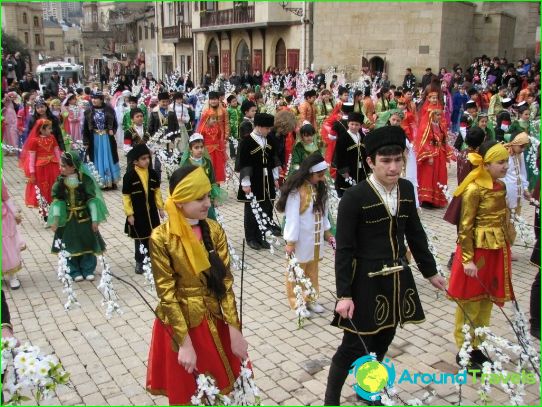
The Republic of Azerbaijan is certainly a predominantly Islamic country (95%), but its national identity, based more on culture and ethnicity than on religion, actively participates in maintaining this singular trend. A trend that helps explain why there is almost no tension between the 649 religious communities that make up this millennia-old country. Communities divided between several faiths: Orthodox Christianity, Ashkenazi and Gregorian Judaism, Zoroastrianism, in addition to an undefined number of non-believers. An inclusiveness which also explains why we meet many religious minorities there, yet persecuted elsewhere, who live there in a climate of total tolerance. This is the case with Bahaism, a religion born in the 19th century. within present-day Iran or Yazidism; a syncretism which amalgamates Zoroastrianism, Islam and Christianity. Another scenario, yet extremely rare in the Muslim world; the absence of any ideological border between the representatives of its two main components, Shiism and Sunnism, clearly antithetical almost everywhere else. This tolerance, which benefits the various religious currents, the most in the minority, is a remarkable reality that the authorities, aware of its exceptional symbolic value, are committed to perpetuating to the best of their ability. Tolerance built in the image of an inviolable fortified castle, the mission of which is to overcome any manifestation of exclusivity, extremism or separatism. With regard to Baku, the promotion of a nationalist identity policy can only materialize by breaking with the anticlerical past of the former USSR, on the one hand, and by distinguishing itself from its long-standing neighbor: the Islamic Republic of Iran, considered too fundamentalist for the taste of international opinion, on the other. It is therefore deliberately that Baku does not hesitate to promote its values of religious tolerance and social inclusiveness, both confronted by the principles of secularism, itself guaranteed by the Constitution. A carefully considered choice which allows the capital of the Caucasus to kill two birds with one stone: to get closer to the West with which it shares many values, and to establish itself as an essential partner within this region. of the highly strategic world.
A land of multi-faith
Located at the junction of East and West, North and South, Islam and Christianity, Azerbaijan stands at the crossroads of those paths that have helped shape much of history. of the world. A peculiarity that makes him the recipient par excellence, and consequently, the continuator of several cultures and civilizations which are reflected in his way of life and thought. One of the most unique crossroads there is, for centuries they have rubbed shoulders with Muslims, Jews, Christians and so many other beliefs. And it is by what it considers cultural and religious pluralism as a philosophy of existence and wanting to be a major player in multiculturalism, that Azerbaijan has since strived to raise this conviction to the dignity of religion or almost .
A modern and secular country at the same time, Azerbaijan demonstrates an almost unmatched level of openness within the Muslim world, and indeed in many places elsewhere. A reason that naturally decided Pope Francis, in October 2016, to go there and publicly express his positive opinions on dialogue and tolerance in the country. An opinion shared by the 500 representatives of some 103 states, including heads of state, Nobel Prize winners and presidents of international NGOs all who came to take part in the 4th International Humanitarian Forum in Baku.
 Musulmans en France L'actualité des musulmanes et musulmans en France
Musulmans en France L'actualité des musulmanes et musulmans en France
